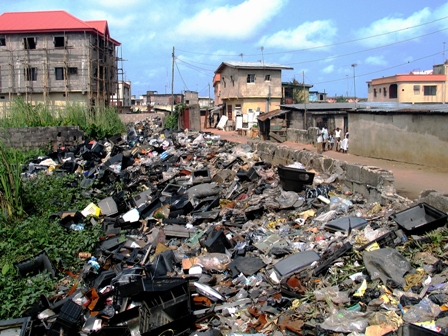UN warns of 'e-waste mountain'
50 tonnes of electronic waste discarded each year

Sign up for breaking news, reviews, opinion, top tech deals, and more.
You are now subscribed
Your newsletter sign-up was successful
Some 50 tonnes of electronic waste is added to rubbish tips every year. And a large part of the used components - which contain numerous heavy metals and hazardous chemicals - end up in African countries.
Rapid development in technology, lower prices on consumer electronics, and an increase in wealth in the developed world is blamed for the rapid rise in the amount of hazardous electronic waste generated.
At the Basel Convention in Nairobi, Achim Steiner, head of the UN environmental programme (UNEP) , said that 50 tonnes of computers, TVs and other electronic equipment is thrown away each year.
A large part of the electronic waste ends up in different parts of Africa. A recent report from the Basel Action Network found that at least 100,000 discarded computers reach the Nigerian port of Lagos alone every month.
Defunct and without worth
Unfortunately, up to 75 per cent of the units are defunct and totally worthless for the receiver, who in turn burns the electronic waste, releasing toxic fumes into the environment.
Since computing equipment holds a multitude of hazardous components, including arsenic and cadmium, the UN hopes to rely on the Basel Convention to stop machines being transported to other parts of the world.
"The need for Basel is ever more evident in this globalised world," Steiner said. "Accelerating trade in goods and materials across borders and across continents is one of the defining features of the early 21st century."
Sign up for breaking news, reviews, opinion, top tech deals, and more.
The Basel Convention was introduced in 1992, aiming to stop transports of hazardous material between countries, and especially from rich countries to poorer. So far 160 countries have signed up.
One of the main aims of the week-long review of the Basel Convention is to make those countries that have yet to sign up - including the US - to sign the agreement.
We will be looking at this issue in more depth throughout the week to see what manufacturers are doing in order to prevent hazardous waste being shipped off to poorer countries.